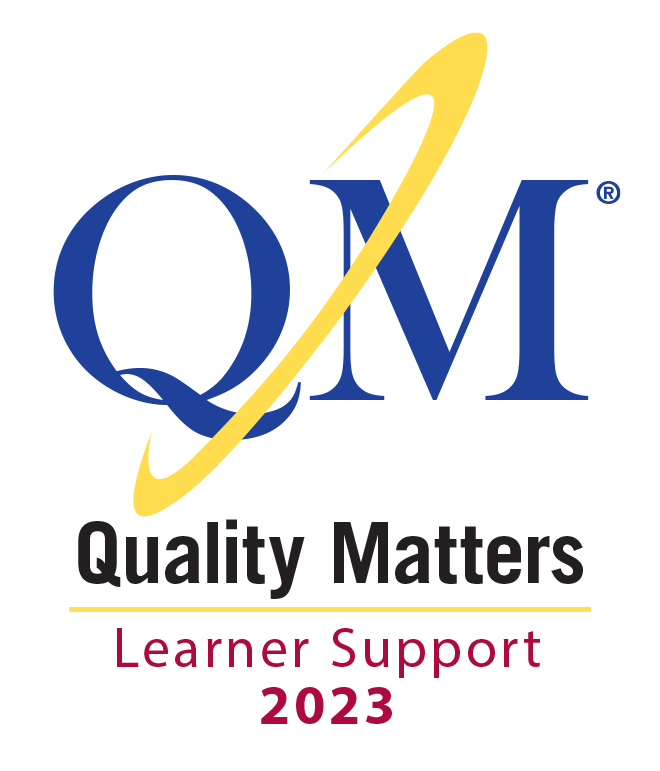Questions? Request Information
Leverage Data to Improve Health Care Outcomes
Rapid advances in technology have revolutionized many aspects of the health care industry, including the way health data is recorded, secured, and shared. The industry-wide implementation of electronic health records has increased access to information which is improving the quality, safety, and efficiency of health care. With your Master of Science in Health Informatics and Analytics degree from the University of Arizona Global Campus (UAGC), you will gain the knowledge to help health professionals provide optimal care.
The online master’s in health informatics and analytics focuses on the structure and function of information, health information exchange, privacy, security and interoperability standards, and the effective use of data in problem-solving and information governance. As a graduate, you will be able to:
- Apply principles of leadership in the development of strategic goals, achieving organizational outcomes, and modeling professional values
- Utilize health care information technology and statistical reasoning in organizational planning and decision-making
- Evaluate health care outcomes using quality improvement and risk standards
- Apply problem-solving approaches in the resolution of health care issues and digital management of health care information
- Analyze data to improve clinical practices, organizational priorities, risk analytics, metrics, and trends
- Propose the design, delivery, and improvement of software applications, training programs, and related courseware
- Evaluate policies and procedures protecting confidential patient information in accordance with federal and state regulations
- Develop strategic initiatives for information management systems and regulatory policies
Military Students $350.00/credit
Health Informatics Master’s Courses $740.00/credit
Technology Fee** $145.00/course
Books and Other Class Materials** $155.00/average per course
Graduation Fee $150.00
Total Program Cost See UAGC Catalog¹
¹Keep in mind that this figure doesn’t factor in any potential discounts, partner benefits, or impact of accepted transfer credits, if eligible.

UAGC offers enrolled students access to ScholarshipUniverse, a platform that tailors external scholarship opportunities to your unique situation, making it easier to find and apply for scholarships.
UAGC is proud to provide reduced tuition rates for our academic and corporate partners, helping community college transfer students and corporate employees earn their degrees at a lower cost.


MS in Health Informatics and Analytics Curriculum Overview
Coursework for the master’s in health informatics online explores topics such as the foundations of health informatics, program management, systems analysis, technology management, health data governance, biostatistics, epidemiology, clinical research, and grant writing.
To be awarded the Master of Science in Health Informatics and Analytics degree, all students must complete 39 credit hours with a 3.0 minimum grade point average in all coursework attempted at the University.
This program is not designed to meet the state educational requirements for a specific professional license or certification in any state. Students seeking licensure or certification in a particular profession shall carefully research the requirements prior to enrollment and regularly review the requirements as they are subject to change. Requirements vary by state. The University of Arizona Global Campus does not guarantee that any professional organization will accept a graduate’s application to sit for any exam for the purpose of professional certification. Further, a criminal record may prevent an applicant from obtaining licensure, certification, or employment in their field of study.
Certain degree programs may not be available in all states.
The Online Teaching Support Certification recognizes programs that require all online faculty to undergo training in best practices for online course delivery, provide faculty with ongoing pedagogical support, encourage faculty professional development to increase their knowledge and skill in online teaching, emphasize instructor availability and feedback to learners, and collect and use feedback from learners to improve online teaching. Learn More

The Online Learner Support Certification recognizes programs that provide all the critical student and academic services needed for learner success and use learner feedback to continuously improve those services.

What Can I Do with a Master’s in Health Informatics and Analytics?
The Master of Science in Health Informatics and Analytics degree program prepares you to handle the technology used to record, secure, and share health data. If you successfully complete the program, you may be able to pursue career opportunities that include:
- Health Information Technologist
- Health Informatics Specialist
- Clinical Data Manager
- Health Informatics Analyst
- Medical and Health Services Manager
- Clinical Data Manager
Gain insights into the health informatics and analytics job market by reviewing the Bureau of Labor Statistics market outlook report.
This degree was perfect for me. The advisors were so very helpful, and the classes were very informative. I definitely got my money's worth.
Master’s in Health Informatics and Analytics FAQs
-
This advanced degree equips you to manage and analyze health data, improve patient care through technology, and oversee health information systems. Graduates often bridge the gap between clinical and technical teams.
-
The health care industry is rapidly evolving with a growing reliance on data and technology, making a master’s in health informatics and analytics increasingly more valuable. Professionals with this degree lead initiatives that enhance health care delivery and patient outcomes.
-
At UAGC, you’ll take one master’s degree course at a time in six-week intervals, allowing you to balance school, work, and family commitments, while still being able to access your online classroom from anywhere. With 39 credits across 13 courses, the master’s degree in health informatics and analytics program can be completed in less than two years.
-
Coursework for the health informatics master’s online explores topics such as the foundations of health informatics, program management, systems analysis, technology management, health data governance, biostatistics, epidemiology, clinical research, and grant writing.
See What Else UAGC Has to Offer
Questions? Request More Information
To access this rate using the Liberty Grant, only eligible undergraduate active duty service members, members of the National Guard, Reservists, spouses of active duty, members of the National Guard and Reservists, Department of Defense employees using Tuition Assistance (TA), and civilian employees of the United States Coast Guard (only if utilizing Military Tuition Assistance) will qualify.
**
The Technology Fee covers access to University systems such as the online classroom, the Student Portal, and other academic resources. The Technology Fee and the Course Digital Materials (CDM) Fee are fully refundable if a student does not attend beyond Day 3 of a course (Week 3 if covered under the University of Arizona Global Campus Promise Refund Schedule). After this time, the fee becomes non-refundable. Students are charged the Technology Fee for repeated coursework. Students are not charged the CDM fee for repeated coursework if previously charged.
†
The transferability of credits is subject to the University of Arizona Global Campus transfer credit policies and requires the submission of official transcripts. The official transcripts will be evaluated by the Registrar’s Office to determine the credits that will officially apply toward a UAGC degree program. Credits must be earned at the same degree level in order to be applied. Additional restrictions may apply. See the UAGC Academic Catalog for full undergraduate and graduate transfer policies.




